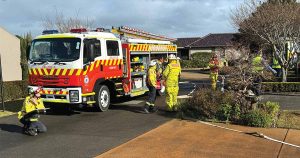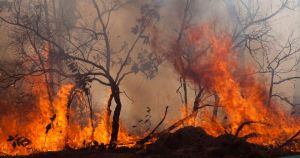By Nikki Mcgrath
The NSW Government is calling on the community to keep an eye out and report cane toad sightings after an increase in incursions in the Greater Sydney region.
Greater Sydney Local land Services and NSW DPI are working to respond to multiple reports of cane toads crossing the NSW border from Queensland.
Greater Sydney LLS biosecurity manager Graham Wilson said that over the last year there had been several cane toads confirmed in at least 11 locations across Greater Sydney including Narrabeen, Kenthurst, Penrith, Caringbah, Windsor Downs and Campbelltown.
“We are seeing a big increase in these sightings with most cases related to the arrival of plant shipments in trucks from Queensland,” he said.
“Cane toads pose a serious biosecurity threat to NSW and indeed Australia, despite some close calls over the years we have been so far been successful in keeping them from establishing in Sydney.”
Mr Wilson urged the community to keep an eye out for suspected cane toad cases in their local area.
“All members of the public can help keep their local area safe by reporting any sightings to NSW DP through its exotic pest helpline,” he said.
Cane pose a serious biosecurity threat in Australia and are considered a pest because they:
- poison pets and injure humans with their toxins
- poison many native animals whose diet includes frogs, tadpoles and frogs’ eggs
- eat large numbers of honeybees, creating a management problem for beekeepers
- prey on small native animals
- compete for food with vertebrate insectivores such as small birds and skinks
- may carry diseases that are can be transmitted to native frogs and fishes.
Anyone coming from cane toad infested areas such as Queensland or the Northern Territory are being asked to check their luggage, vehicle or trailer to ensure they are not bringing a cane toad into NSW.
A suspected cane toad should be immediately reported to NSW DPI Biosecurity through its helpline on 1800 680 244, by completing the online form, or emailing a photo of the face and details to invasive. [email protected].
Visit the NSW DPI website for more information.




